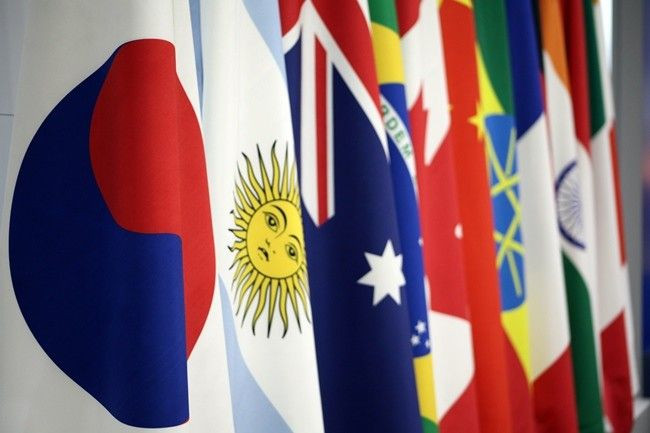Korea Pushes National Brand At G20

The G20 has put the mayor of Seoul, Oh Se-hoon, in the spotlight, as reporters from all over the world converge on the city. So he isn't missing a chance to get in front of the cameras and sing Seoul's praises.
Meanwhile, Bae-Yong Lee, chair of the Presidential Council on Nation Branding, gave a presentation to the media - few of whom had arrived yet - showing the progress South Korea has made.
It's part of a larger program from the government of Korea to promote the country's brand - and showing the world that Korea has arrived, using the same advertising technique that a major resort or car company might.
Lee's press conference stressed the progress Korea has made, and mentioned that it is the only countries in the Organization of Economic Cooperation and Development to go from being a recipient of foreign aid to a donor. Korean companies are strong competitors in several industries, especially high technology.
Promoting a national brand is about prestige, Lee said. About earning the trust and love of the international community.
Oh gave similar presentations twice in one day - first to reporters in the main press center, and then to a more captive audience at a welcoming dinner. Both gave a prominent place to the qualities that make Korea a good place to invest, as well as an easier city for expatriate workers.
Seoul is putting its money where its mouth is. In 2007, the city spent 5.3 billion won ($4.73 million) on promoting the city as a tourist and investment destination. That increased to 40 billion won ($35 million) in 2008, and tailed off to 33.9 billion won in 2009, in the face of a severe worldwide economic crisis.
Competition won't be between countries, it will be between cities, he said, during one press conference.
In one presentation, the mayor touted the availability of housing to people who work in Korea for foreign companies. He said there was more world-class health care available, and more health care providers who could speak foreign languages.
More than 200 multinational companies have offices in Seoul, and encouraging more investment is a signature piece of mayor Oh's agenda for the future.
While Korea is best known as a home of high technology, Oh said the financial services industry is one the city will work hard to attract. He spoke of nourishing asset management, and setting up a district with looser regulations and tax breaks.
Tourism is another focus. Oh said there are several parks in Seoul that offer green space and a green sensibility. One, he noted, was a waste dump before being rebuilt as a bit of greenery in the urban landscape of Seoul.
Lee's presentation was similar - much of her speech was given over to extolling the virtues of tourist attractions, and touting the UNESCO cultural heritage sites. Oh, at one of his conferences, mentioned the possibility of altering visa requirements to attract more visitors from China.
It is far from clear that a branding campaign will do much to improve the city's prospects - Korea was largely insulated from the worst of the financial crisis, but there is a lot less money for tourism generally.
Even Oh acknowledged this when he said there was a big expansion of budget-oriented accommodations in Seoul, such as youth hostels. He also noted that one of the efforts the city is making is to make it less expensive for expats, by building cheaper housing.
© Copyright IBTimes 2025. All rights reserved.





















